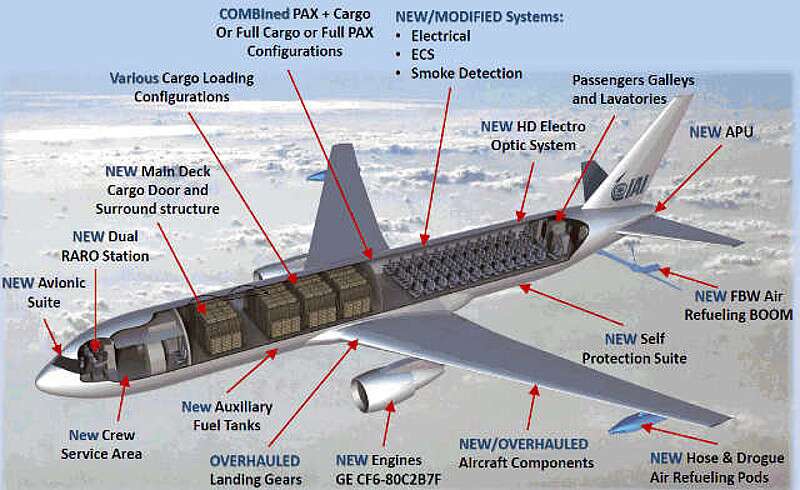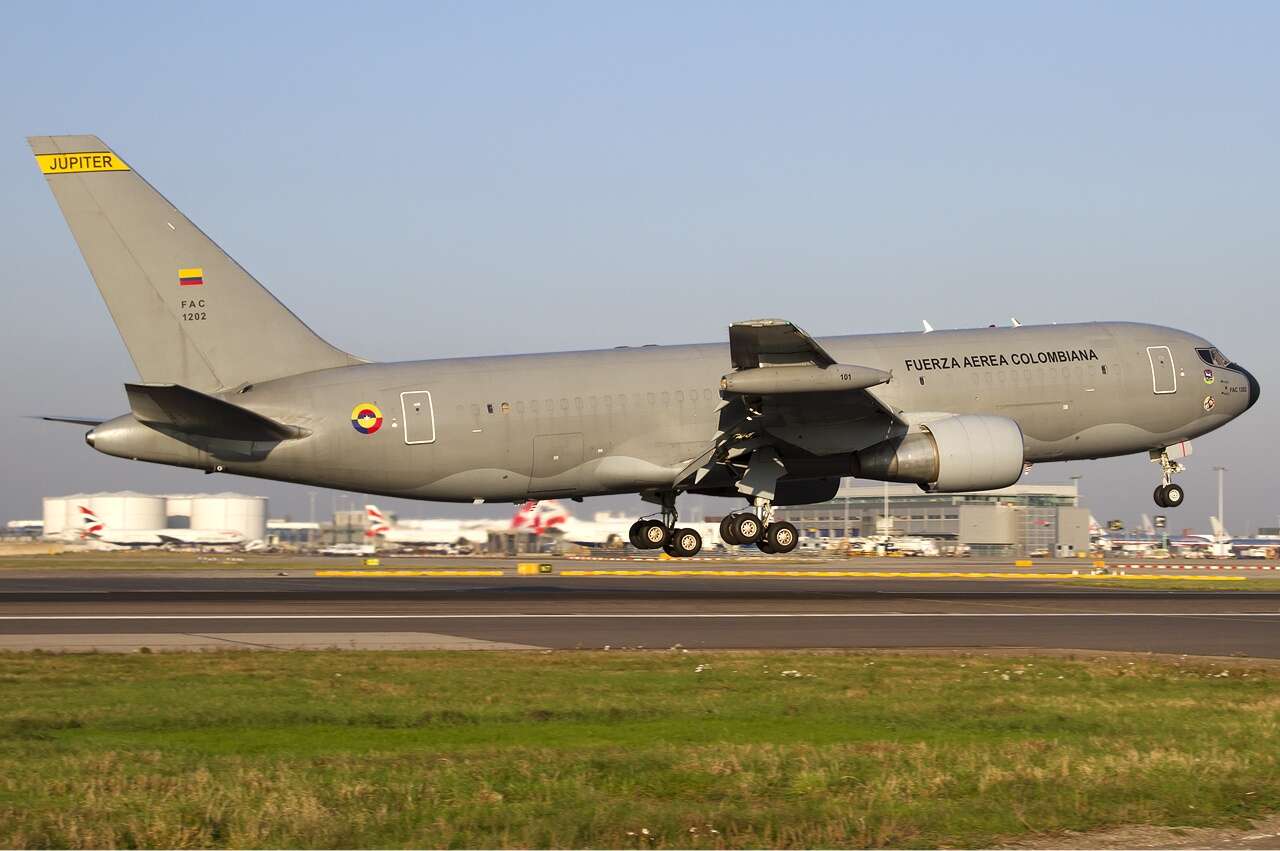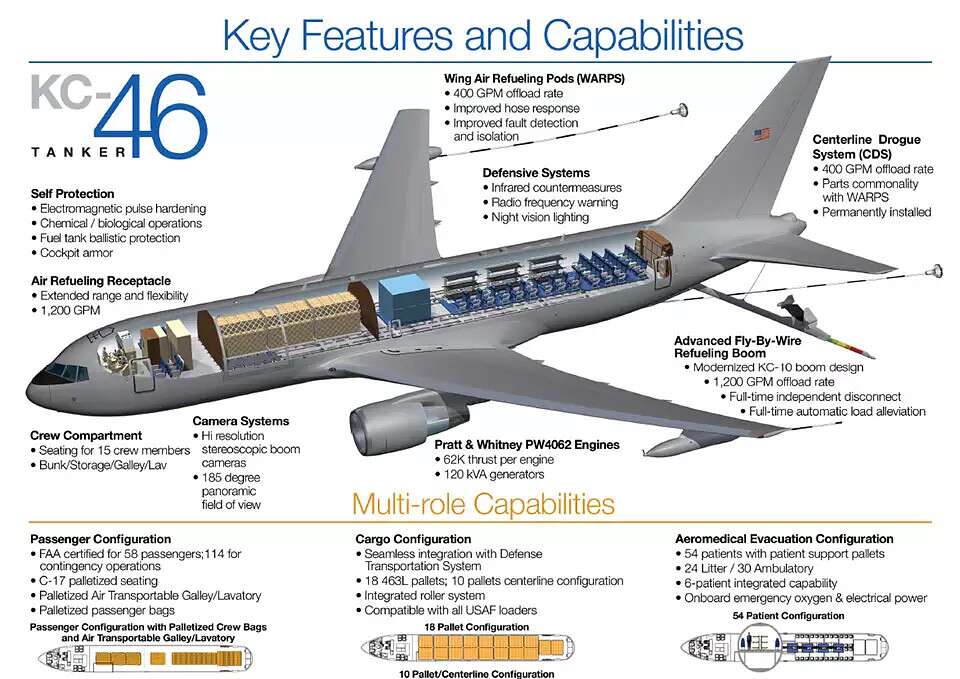
Posted on 08/10/2018 8:04:13 AM PDT by sukhoi-30mki
Israel is mulling over a large, multi-billion dollar defense spending boost for the Israeli Air Force, or IAF, which could include money for fighter jets, transport helicopters, cargo planes, and six new aerial refueling tankers. This last tender was already set to be highly competitive and now there are reports that Boeing has blocked Israel Aerospace Industries, also known as IAI, from offering second-hand 767 airliners converted into tanker-transports, which would be a direct threat to its own troublesome 767-based KC-46 Pegasus.
The Israeli business daily Globes was the first to report the developments on Aug. 6, 2018. According to their sources, the American planemaker had refused to issue the required approvals for IAI’s Bedek Aviation Group division to make the modifications. It is possible that the Chicago-headquartered company could use this same mechanism to prevent the Israeli firm from competing against it with a Boeing-based platform in any future tanker competition anywhere in the world.
“This is a serious restriction,” a source told Globes regarding Boeing’s decision. “Regrettably, and there is genuine regret, IAI is ruled out of the process” to bid on the contract for future IAF tankers.
In July 2018, media outlets in Israel had reported that the IAF was in negotiations with Boeing about the possible purchase of its KC-46 tankers, but indicated that IAI and European consortium Airbus would put forward bids. Bedek had reportedly made a very attractive offer to convert second-hand 767s into an appropriate configuration for a total cost of around $150 million each.
It's unclear how much of a saving this would necessarily be compared to the KC-46, though. The U.S. Air Force, which has a firm, fixed-price contract with Boeing is buying the aircraft for around the same price. However, in February 2018, Boeing received a contract for the first KC-46 for Japan worth nearly $280 million, but it is unclear if this includes spare parts or other support services.
Still, Bedek would also be able to point to its well-established history of working with Boeing products under license and converting some of those aircraft, including 767s, into tanker-transports. The Brazilian and Colombian Air Forces both operate examples of this KC-767 conversion, which IAI also refers to as the Multi-Mission Tanker Transport (MMTT) configuration.
The MMTT conversions have only included probe-and-drogue fueling equipment, so Bedek would have had to develop a boom-type refueling system for any version it would have pitched to the IAF, which uses this method for refueling its fixed-wing aircraft. Still, the company has been doing exactly this type of work since the 1980s.
This firm is the one that supplied the fleet of modified 707 airliners with a boom-type arrangement that the Israelis use to this day. There's a broad precedent for turning used commercial aircraft into tankers, too, with the U.S. Air Force's own KC-10 Extenders having started life hauling passengers.

IAI
A breakdown of the 767 MMTT conversion's features.
Boeing’s decision has the potential to hit hard at IAI’s finances and could put up to 500 jobs at risk, according to Globes. It could also possibly put the future of the Bedek division itself in question if it looks as if the American company might make a habit of blocking them from competing in military tenders that it wants for itself.
“How would it make business sense for Boeing to give IAI such a permit when it is bidding against it in the very same tender?” the source told Globes. But no matter how reasonable this all might seem from a business perspective and regardless of how much genuine regret Boeing might have about the situation, the American company clearly has a fear that its KC-46 would not be able to win against the IAI offer for a variety of reasons.

CHRIS LOFTING/WIKICOMMONS
A Colombian KC-767 MMTT.
The basic price difference is certainly one aspect of this, but the Pegasus has already had a long and overwrought development process and has suffered repeated difficulties and delays. In recent months, the U.S. Air Force, the launch customer for the type, had become unable to contain its ire about how things have gone and publicly took Boeing to task over the situation.
In June 2018, Boeing and the Air Force had agreed on a new date for the delivery of the first KC-46, now scheduled for some time in October. But on Aug. 3, 2018, Aviation Week reported that a long-standing issue with the probe-and-drogue refueling system, which the KC-46s will use to refueling U.S. Navy and Marine Corps aircraft, had cropped up again.
The centerline drogue, one of three the KC-46 can carry, has a habit of inadvertently disconnecting from receiving aircraft, frustrating an already complex refueling process, which can be even more complicated during bad weather, at night, or under tense operational conditions. It is unclear whether this problem will push that back yet again.
You can read more about the various issues that have led to the program ending up in this predicament in detail in a feature our own Tyler Rogoway wrote for Foxtrot Alpha in 2015, at which time the KC-46 program had been going on for nearly four years already. That project was itself an outgrowth of previous abortive U.S. Air Force tanker competitions and Boeing’s own earlier KC-767 concept, which it sold to Italy and Japan.
And despite Boeing’s previous experience, the KC-46 is a very different beast, made up of components from various different types of 767s combined with a remote-control, fly-by-wire aerial refueling boom, instead of a traditional one with a crew member situated at the rear of the aircraft to operate it, and other new features. The new boom and the associated Remote Vision System, which an operator in the main cockpit uses to control it, have both proven to be particularly troublesome.

BOEING
A look at the key feature of the KC-46.
The arrangement has led to damaged receiving aircraft and produced violent physics that has made it simply dangerous certain larger planes to refuel from the KC-46 at all in the past. It's unclear if Boeing has been able to completely resolve either issue.
The boom scraping along or denting the skin of a receiving aircraft would be bad enough, but for modern stealthy designs, it might impair the low observable characteristics of those planes. The Israelis will almost certainly be concerned about this given that they are buying F-35 Joint Strike Fighters and have already reportedly sent them into combat.
Tankers would already be essential for any Israeli contingency planning with regards to more conventional opponents, chiefly Iran, as would the F-35’s ability to penetrate dense air defenses to either strike targets or neutralize those enemy positions to pave a way for follow-on operations by non-stealthy aircraft. The IAF’s new aerial refueling will need to be able to work seamlessly with the Joint Strike Fighters, which Israel calls the Adir, or “Mighty,” as well as its fourth generation combat jets.
As noted, Bedek would have had to design a new boom setup for its KC-767 MMTT for the IAF competition, but it is highly unlikely that the firm would have chosen a remotely operated arrangement given Boeing’s troubles with the KC-46 and its experience with the KC-707. This could have simplified the conversion process immensely and no doubt contributed to the much lower price point of the Israeli offering.
Boeing itself could have chosen to offer a version of its earlier, proven KC-767, but it would be hard not to see a highly experienced air force such as Israel’s considering that variant as a referendum against the Pegasus. The American planemaker isn’t offering the older design anymore at all, even to existing operators, such as Japan, which is now buying KC-46s.
Depending on how seriously the Israelis view the continuing boom issues and if Boeing can't convince them that it has or will soon rectify these problems, the decision to force out Bedek of the running might push the IAF away from a Boeing based design entirely. Airbus is almost certainly interested in competing for this deal with its A330 Multi-Role Tanker Transport (MRTT) aircraft, which has a unit cost of around $200 million, cheaper still than the KC-46.
Australia already operates a version this aircraft with a boom as the KC-30A and plans to use it in cooperation with its F-35A Joint Strike Fighters. The Royal Australian Air Force has already demonstrated the aircraft’s ability to refuel the stealthy fighter jets, among other aircraft.
Boeing's move against IAI might lead to a broader chill between the company and the Israeli government, which could impact a host of other deals. Most notably, the IAF appears very interested in buying more of the company's F-15 combat jets. The firm is also hoping to sell V-22 Osprey tilt-rotors and CH-47 Chinook transport helicopters to Israel.
International politics could play a role in the final decision, as well, since U.S. President Donald Trump has been an outspoken supporter of Israel and is eager to promote American weapon sales to allies abroad. His administration could push for additional military aid to the Israeli government or otherwise help facilitate purchases of KC-46s and potentially make them more attractive compared to any competing bid in the process.
Whatever the case, it seems hard to see how IAI will be able to put forward a bid, at least using a Boeing airframe, which could have serious ramifications for both companies in the near- and long-term.
There’s no profit in “no.”
Didn’t IAI also attempt to tender an offer for KC-X that Boeing evenually won? Or did they just threaten it then never followed through?
Boeing wants the world to buy Airbus? That’s the message they’re sending here.
BTTT
Disclaimer: Opinions posted on Free Republic are those of the individual posters and do not necessarily represent the opinion of Free Republic or its management. All materials posted herein are protected by copyright law and the exemption for fair use of copyrighted works.